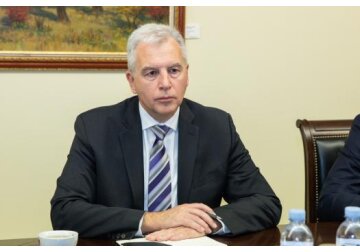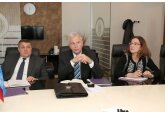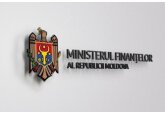
Moldova will emerge from the crisis next year, perhaps a little earlier than the rest of Europe - the IMF.
This was stated by Alfred Kammer, director of the European Department of the IMF, in an interview with the Moldovan media. He reminded that the world economy, and Europe in particular, has experienced two major shocks. Before the Russian invasion into Ukraine, the COVID-19 pandemic was fought at the global level, policies were implemented to overcome this phase and at the same time to protect the economy, to preserve the standard of living of the population. These efforts at the global level, in the European Union, as well as in Moldova, were successful. "Thus, last year we saw that the European economy recovered strongly, overcoming the impact of the pandemic. In Moldova, this has already happened in 2021, a little earlier than in the rest of Europe. We came out of the pandemic well, all things considered. And then the war broke out in Ukraine, which had a huge impact on the economy of Europe, Moldova, and also had an impact on the global level, because the prices of raw materials went up, the purchasing power of the population went down, it threatened the possibility of maintaining a decent standard of living, and it increased inflation. Thus, the war had a pronounced negative impact on the world economy and, consequently, affected the economy of Europe as well as Moldova. And when we look at the economic growth forecast, the growth rate will slow down at the global level. This year, we are seeing a fairly significant slowdown in Europe. What we see in Moldova is that the country will come out of this crisis next year, perhaps a little earlier than the rest of Europe," Alfred Kammer said. He stressed that because Moldova was affected by inflation and felt the effects of inflation earlier than the rest of Europe, the National Bank of Moldova adopted monetary policy measures earlier than central banks in the rest of Europe to stop and control inflation. "And here we see that inflation in Moldova is already falling. The National Bank of Moldova could already afford to ease monetary policy thanks to the successful fight against inflation. But the problem of high inflation remains. We must continue our efforts in this direction," Alfred Kammer said. According to him, the Fund pays a lot of attention to inflation: it should be kept under control because inflation affects the poor the most. Alfred Kammer said that both in Europe and in Moldova, the policies promoted have been very timely in terms of solving the problem of cutting and stopping supplies of natural gas from Russia. "These were painful times; these were difficult times for everyone. But looking back, things could have been much worse if many governments and many politicians had not taken the necessary actions. Moldova did what was necessary to overcome this crisis and protect the vulnerable, to identify solutions to ensure energy supplies now and in the future. The struggle is not over yet, since the next heating season is in 2023-2024, but in general Europe is in a good position. There is room to rebuild the required level of natural gas reserves. Stocks have remained at a high level, also due to a mild winter. So Europe will be well prepared for the next winter, but we have to monitor the situation very carefully. At the same time, we need to pay attention to inflation at this point, and central banks must be vigilant and very flexible in adjusting monetary policy according to the evolution of inflation. Inflation needs to be kept under control," the IMF's Director of the European Department stressed. // 13.03.2023 – InfoMarket







